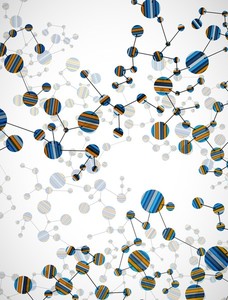The clinical trials, especially those in rheumatoid arthritis, used to support the approval of Boehringer Ingelheim’s BI 695501 (Cyltezo), were critically reviewed by authors from Argentina and the UK [1].
Cyltezo (adalimumab-adbm) was approved in the US in August 2017 [2]. The biosimilar was also approved in Europe in November 2017 but was withdrawn in January 2019 [3].
Biosimilar approval does not require the manufacturer to re-establish efficacy but is instead based on the demonstration that there are no clinically meaningful differences from the reference product [4, 5].
Boehringer Ingelheim carried out extensive structural and functional analyses comparing BI 695501 to originator adalimumab demonstrating that the biosimilar was highly similar in structure notwithstanding minor differences that had no impact on function of the molecule [6]. The company also reported in October 2015 that results from a phase I study of BI 695501 versus the reference product (Humira) had ‘demonstrated pharmacokinetic (PK) bioequivalence’ [7]. The phase I PK study (NCT02045979) was carried out in 327 healthy male adults. This was the second phase I PK study to be carried out by the company, another study (NCT01505491), carried out in 193 healthy male adults was completed in July 2012. Pharmacokinetic studies in healthy volunteers demonstrated the equivalence of the biosimilar to the originator in parameters such as area under the curve (AUC) and Cmax [7]. Subsequent equivalence studies for BI 695501 were carried out in rheumatoid arthritis (RA) (NCT02137226 and NCT02640612), in plaque psoriasis (NCT02850965) and in Crohn’s disease (NCT02871635).
The VOLTAIRE-RA study (NCT02137226) was a 58-week, double-blind, randomized, parallel-arm study in patients with moderate to severe RA on stable methotrexate. At Week 24, patients were re-randomized to continue on BI 695501 or Humira, or switch from Humira to BI 695501. A total of 645 patients (BI 695501: 324, Humira: 321) were enrolled and randomized.
The percentage of patients achieving the ACR20 at week 12 was 67.0% for BI 695501 and 67.1% for Humira (90% CI: −0.9 to 12.7). At Week 24 the corresponding values were 69.0% and 64.5% (95% CI: -3.4 to 12.5). These differences were within pre-specified margins (Week 12 90% CI: -12 to 15%; Week 24 95% CI: -15 to 15%), demonstrating therapeutic bioequivalence. At Week 24, 593 patients were re-randomized. Up to Week 48, the mean change from baseline in DAS-28** and ACR20/ACR50/ACR70 response rates were similar across the switched (n = 147), continuous BI 695501 (n = 298), and continuous Humira (n = 148) groups. Similar immunogenicity [anti-drug antibodies (ADAs), ADA titres and neutralizing antibodies] was seen between BI 695501 and Humira (to Week 24), and across re-randomized groups (to Week 48) [6].
Safety and tolerability profiles were similar between groups. However, three aspects of safety initially raised concern about the safety profile of BI 695501. First, haematological disorders were more frequent in the continuous BI 695501 group than continuous Humira group (5.2 vs 2.9%). Second, bone fractures occurred exclusively in the BI 695501 group (7 patients, 2.2%), a trend that was also observed in the PK trial. Third, patients who received BI 695501 more frequently screened positive for tuberculosis (no active cases) at week 48: 8 patients (2.8%) in the BI 695501 group, 1 patient (0.7%) in the Humira group and 8 patients (5.7%) in the switch group (Humira to BI 695501). All patients screened negative for tuberculosis at the start of the trial.
The EMA accepted that all three were rare events and that the minor differences were likely a chance finding.
* The ACR20 is the American College of Rheumatology criteria for clinical improvement in patients with rheumatoid arthritis, indicating a 20% improvement across a series of diagnostic parameters
** Disease Activity Score-28 for rheumatoid arthritis with C-Reactive Protein
Related articles
Clinical trials for adalimumab biosimilar SB5
Clinical trials for adalimumab biosimilar ABP 501
Clinical trials supporting the approval of adalimumab biosimilars
Biosimilars of adalimumab
References
1. Zhao S, Chadwick L, Mysler E, Moots RJ. Review of Biosimilar Trials and Data on Adalimumab in Rheumatoid Arthritis. Curr Rheumatol Rep. 2018;20(10):57.
2. GaBI Online - Generics and Biosimilars Initiative. Biosimilars approved in the US [www.gabionline.net]. Mol, Belgium: Pro Pharma Communications International; [cited 2020 Apr 17]. Available from: www.gabionline.net/Biosimilars/General/Biosimilars-approved-in-the-US
3. GaBI Online - Generics and Biosimilars Initiative. Biosimilars approved in Europe [www.gabionline.net]. Mol, Belgium: Pro Pharma Communications International; [cited 2020 Apr 17]. Available from: www.gabionline.net/Biosimilars/General/Biosimilars-approved-in-Europe
4. GaBI Online - Generics and Biosimilars Initiative. EU guidelines for biosimilars [www.gabionline.net]. Mol, Belgium: Pro Pharma Communications International; [cited 2020 Apr 17]. Available from: www.gabionline.net/Guidelines/EU-guidelines-for-biosimilars
5. GaBI Online - Generics and Biosimilars Initiative. US guidelines for biosimilars [www.gabionline.net]. Mol, Belgium: Pro Pharma Communications International; [cited 2020 Apr 17]. Available from: www.gabionline.net/Guidelines/US-guidelines-for-biosimilars
6. GaBI Online - Generics and Biosimilars Initiative. Efficacy, safety and immunogenicity of adalimumab biosimilar BI 695501 [www.gabionline.net]. Mol, Belgium: Pro Pharma Communications International; [cited 2020 Apr 17]. Available from: www.gabionline.net/Biosimilars/Research/Efficacy-safety-and-immunogenicity-of-adalimumab-biosimilar-BI-695501
7. GaBI Online - Generics and Biosimilars Initiative. Positive phase I results for adalimumab biosimilar [www.gabionline.net]. Mol, Belgium: Pro Pharma Communications International; [cited 2020 Apr 17]. Available from: www.gabionline.net/Biosimilars/Research/Positive-phase-I-results-for-adalimumab-biosimilar
Permission granted to reproduce for personal and non-commercial use only. All other reproduction, copy or reprinting of all or part of any ‘Content’ found on this website is strictly prohibited without the prior consent of the publisher. Contact the publisher to obtain permission before redistributing.
Copyright – Unless otherwise stated all contents of this website are © 2020 Pro Pharma Communications International. All Rights Reserved.








 0
0











Post your comment